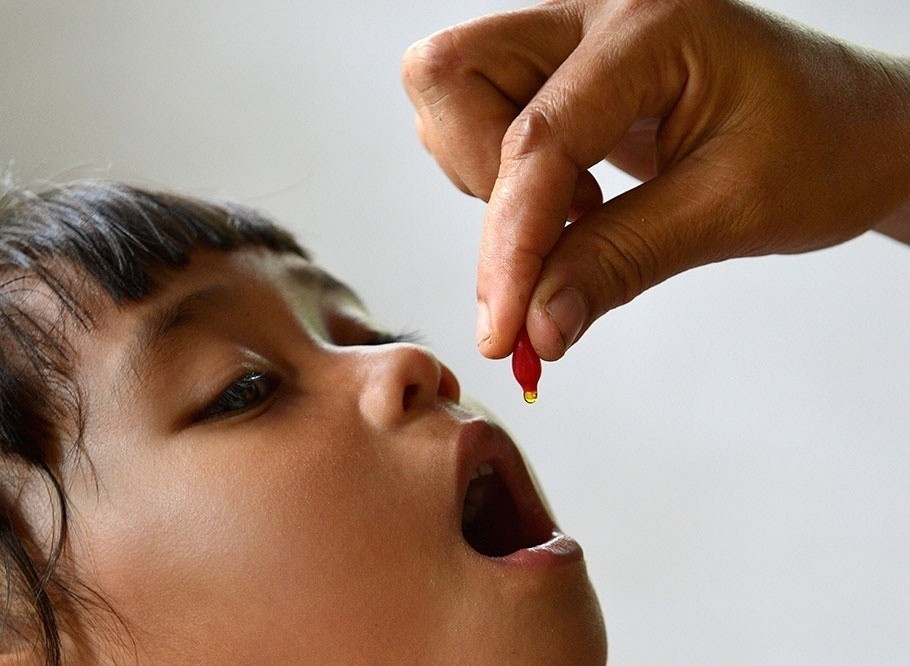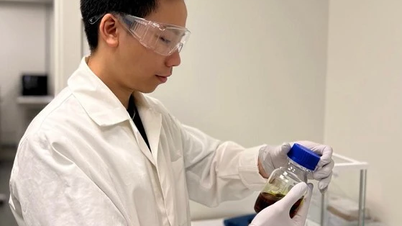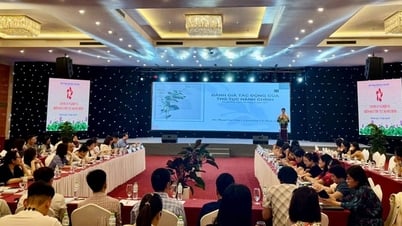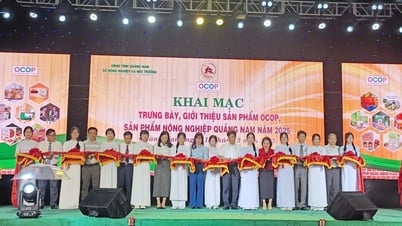The Department of Maternal and Child Health, Ministry of Health , has just issued an official dispatch to deploy the first phase of the Vitamin A supplementation campaign combined with deworming for children, which will be carried out nationwide in June.
Vitamin A plays an important role in the health and overall development of children. Photo: Nutritionintl .
In this campaign, in 22 disadvantaged mountainous provinces, each child aged 6-59 months will receive 1 dose of vitamin A, and children aged 24-59 months will receive periodic deworming. In the remaining 41 provinces and cities, the Ministry of Health will provide 1 dose of vitamin A to children aged 6-35 months. The source of medicine used in the campaign is provided by Vitamin Angel Organization (USA).
Based on actual conditions, the Ministry of Health requires the development of specific plans and proactive organization of appropriate campaigns, ensuring that all children of the right age are supplemented with vitamin A and dewormed according to instructions.
The Ministry of Health assigned the Institute of Nutrition to take the lead in developing a plan for vitamin A distribution and provide professional guidance for implementing the vitamin A supplementation campaign. The Central Institute of Malaria - Parasitology - Entomology took the lead in developing a plan for deworming medicine distribution and provided professional guidance for implementing deworming activities for children during the campaign.
Vitamin A plays an important role in the health and comprehensive development of children. Every year, the Ministry of Health organizes a campaign to supplement high-dose vitamin A for more than 6 million children aged 6-54 months nationwide (there are 2 campaigns each year: Phase 1 in June and Phase 2 in December). During these campaigns, children of this age are supplemented with high-dose vitamin A capsules.
According to health experts, to prevent micronutrient deficiency, in addition to the short-term solution of taking micronutrient supplements (such as high-dose vitamin A capsules, multi-micronutrient tablets, etc.), the medium-term solution is to use micronutrient-fortified foods, the long-term and fundamental solution is to improve the quality of meals.
Therefore, units need to strengthen communication work, encourage people to use a variety of foods, combine many types of food for daily meals; prioritize choosing and using foods rich in micronutrients and practice exclusive breastfeeding for the first 6 months of life according to the recommendations of WHO and the Ministry of Health.
TS
Source






![[Photo] Prime Minister Pham Minh Chinh holds talks with Prime Minister of the Kingdom of Thailand Paetongtarn Shinawatra](https://vphoto.vietnam.vn/thumb/1200x675/vietnam/resource/IMAGE/2025/5/16/23b5dd1e595d429491a54e3c1548fb79)
![[Photo] Welcoming ceremony for Prime Minister of the Kingdom of Thailand Paetongtarn Shinawatra on official visit to Vietnam](https://vphoto.vietnam.vn/thumb/1200x675/vietnam/resource/IMAGE/2025/5/16/cdd9e93739c54bb2858d76c3b203b437)































































































Comment (0)